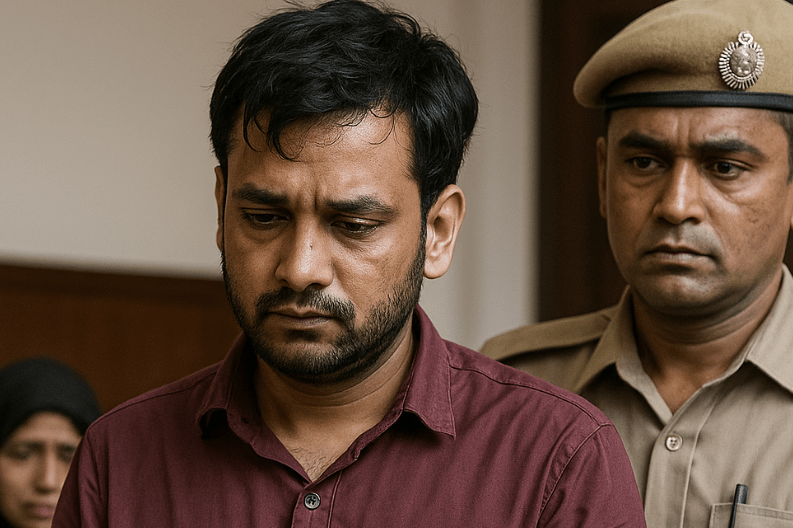New Delhi, October 11: A city court in Ghaziabad has delivered a major verdict as a man sentenced to 10 years for dowry death of his wife, bringing partial justice in a case that reveals the harsh realities of forced marriage and dowry abuse. The convicted man, Sharik, caused the death of his wife, Zeba, after years of harassment and pressure linked to dowry demands.
The case began with a marriage that neither Sharik nor Zeba wanted. Their families forced them to marry after private photos of the couple leaked online. What started as a forced union soon turned abusive. On December 24, 2023, Zeba died under suspicious circumstances after reportedly falling down the stairs. Her mother, Zeenat, filed a complaint accusing Sharik and his parents of dowry harassment and murder.
On Thursday, Judge Shiv Kumar Tiwari sentenced Sharik to 10 years in prison under Section 304B of the Indian Penal Code for dowry death. He also imposed two additional two-year terms under Section 498A for harassment and under the Dowry Prohibition Act. Although police arrested Sharik’s parents on January 16, 2024, the court acquitted them due to insufficient evidence.
The trial exposed disturbing details. Both Zeba and Sharik worked at call centers and had a brief relationship before Sharik posted intimate photos online. Under family pressure, they married on March 4, 2018. Witnesses testified that the marriage was forced. Zeba’s family learned about the harassment only after her father died in 2019. “They started visiting us after my husband’s death. That’s when we realized she was suffering from dowry abuse,” Zeenat told the court.
Medical evidence strengthened the case. Dr. Sufali, who performed the autopsy, reported that Zeba died from blunt force trauma and brain injuries caused by a fall. All injuries occurred before her death, and the findings raised serious doubts about the claim of an accident. Witnesses confirmed that Sharik repeatedly harassed Zeba and subjected her to emotional abuse.
The judge ruled that Sharik bore full responsibility for her death. He cited a Supreme Court ruling, stating that the husband’s actions and the surrounding circumstances proved his guilt beyond doubt.
This case highlights a much deeper issue. Dowry-related deaths continue to claim lives in India, especially in northern states like Punjab. Despite the Dowry Prohibition Act of 1961, dowry demands and forced marriages remain common. Women’s rights groups and NGOs are now intensifying awareness campaigns to educate families and empower women to seek legal help.
Experts warn that cultural pressure often pushes families into unwanted marriages, leading to lifelong suffering or even death. They call for stronger enforcement of existing laws, more community education, and better support services for victims.
Zeba’s story is a painful reminder of why society must act. We need to protect women from dowry violence and forced marriages by promoting consent, equality, and justice. Communities must work together to end these harmful practices.
In conclusion, the verdict in the case of a man sentenced to 10 years for dowry death of his wife shows that justice is possible. Yet, it also reminds us that India must strengthen its fight against dowry-related violence. With stronger laws, better awareness, and community support, we can build a future where women live without fear and oppression.



